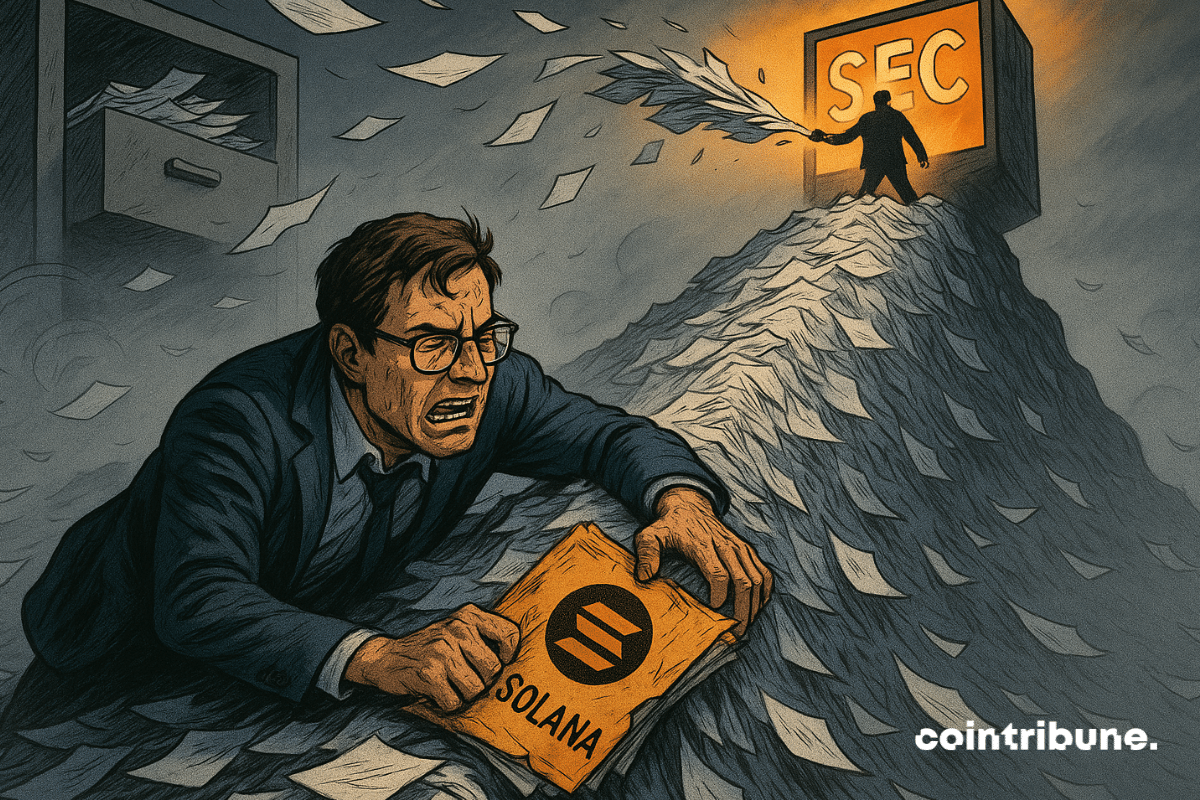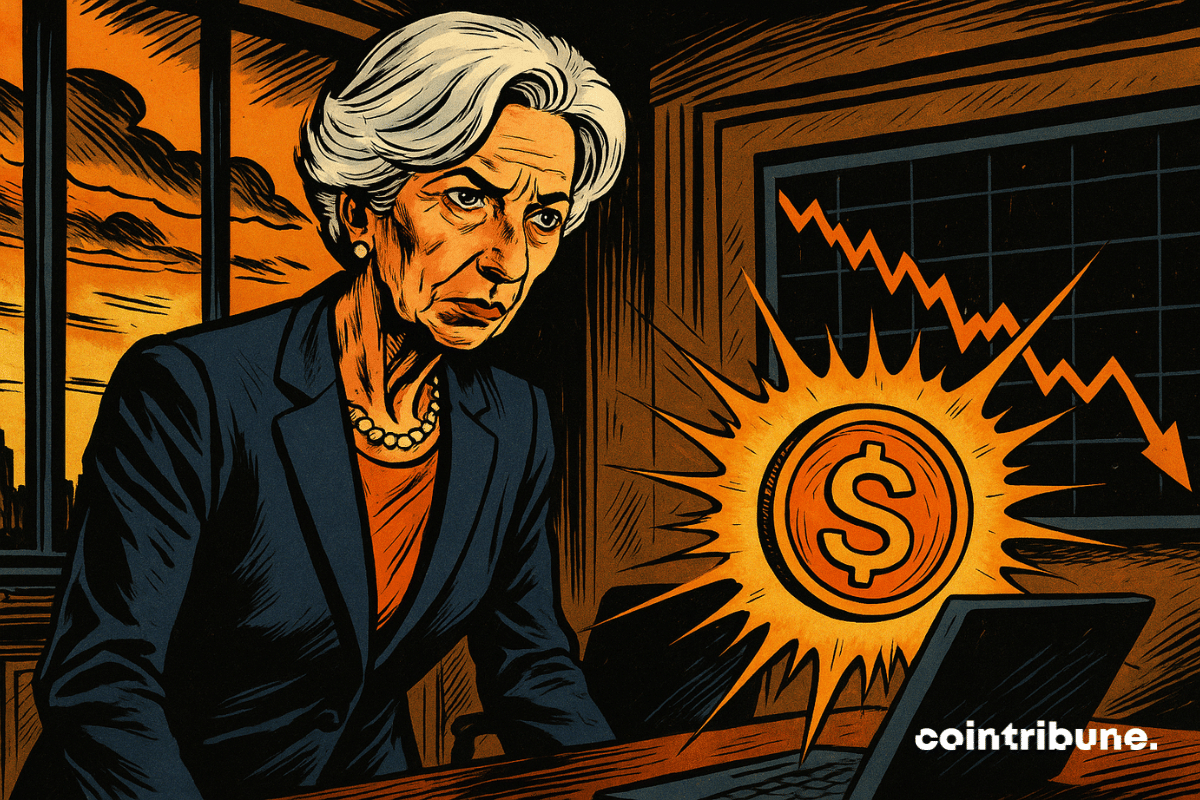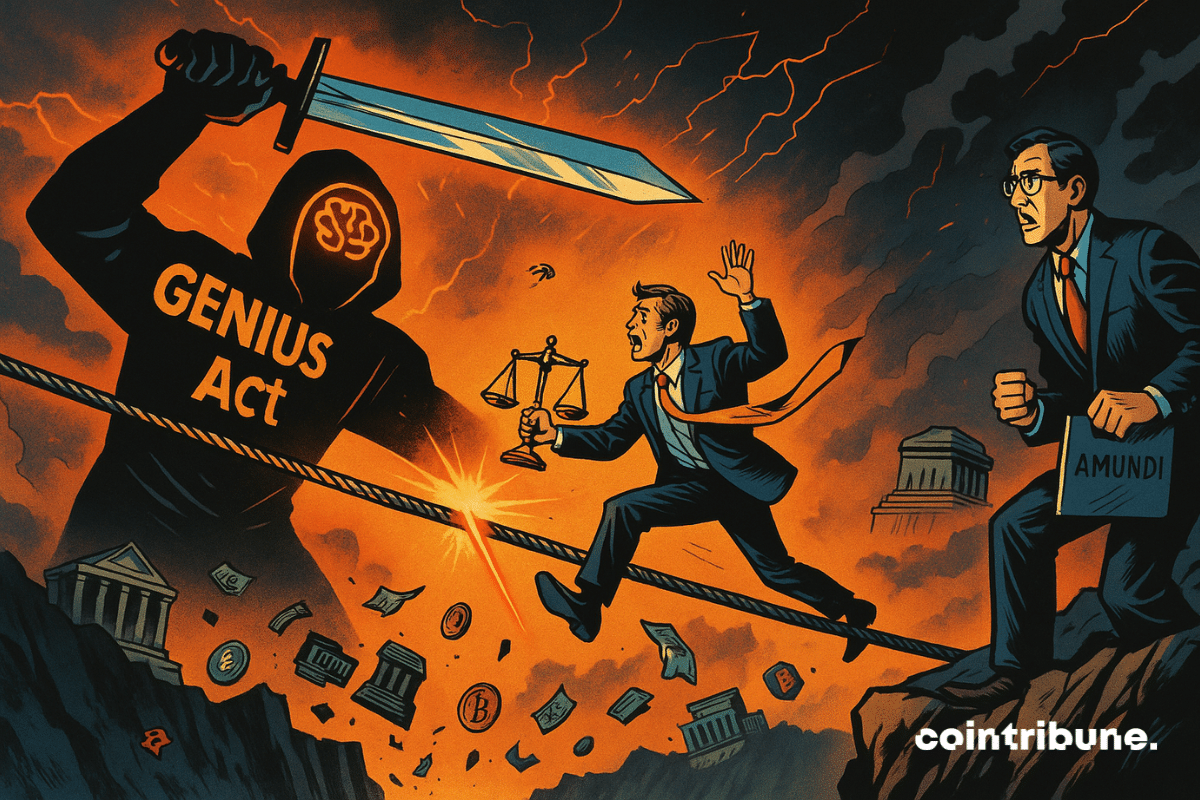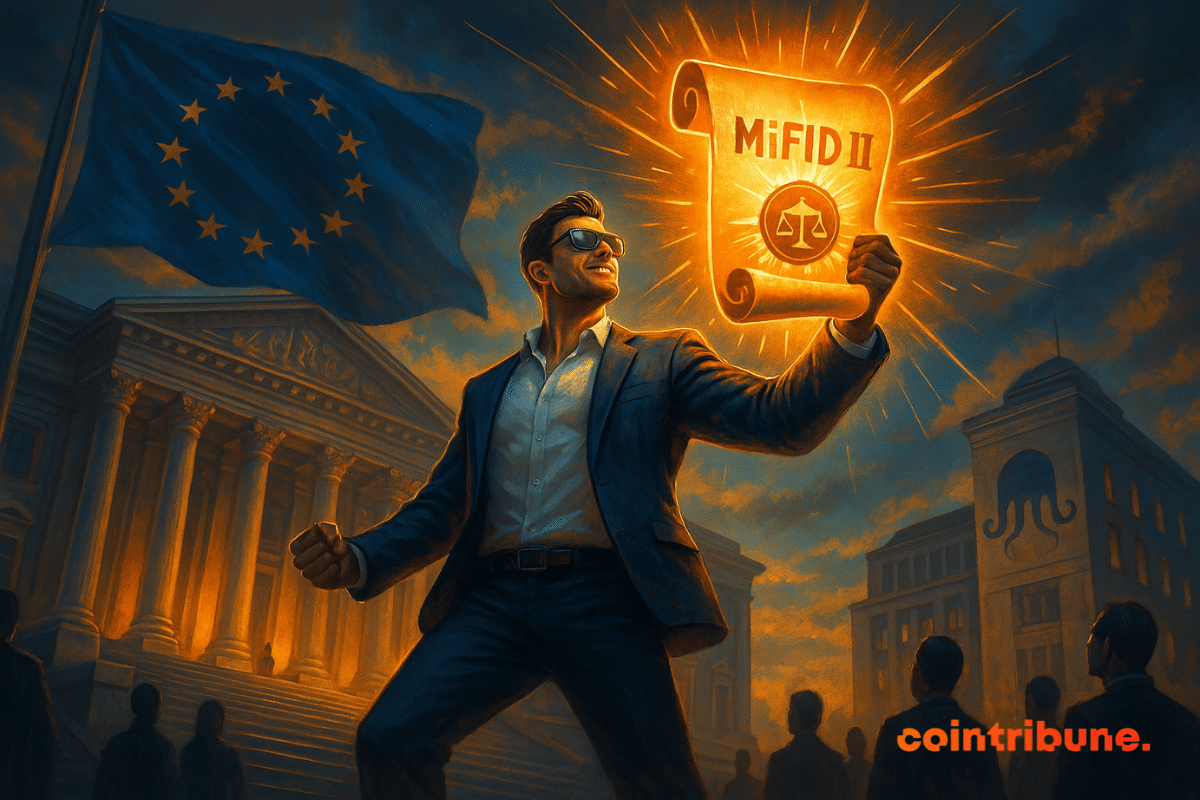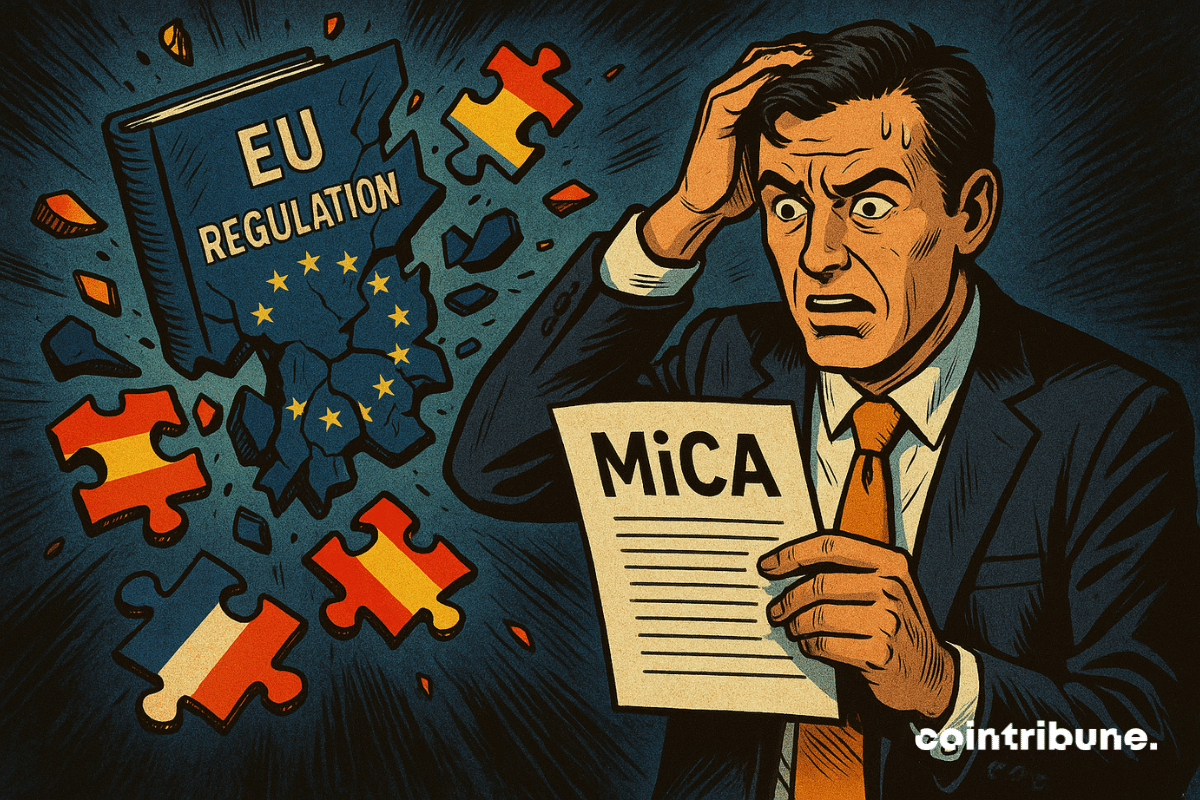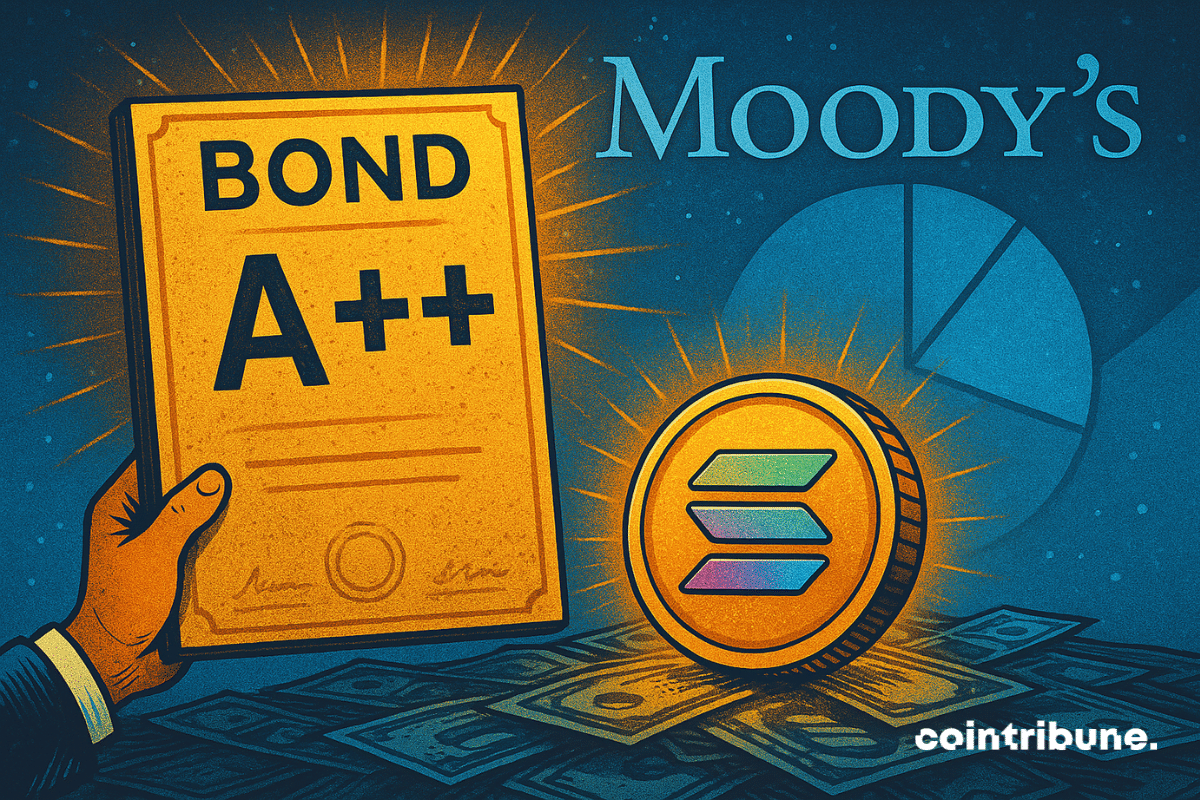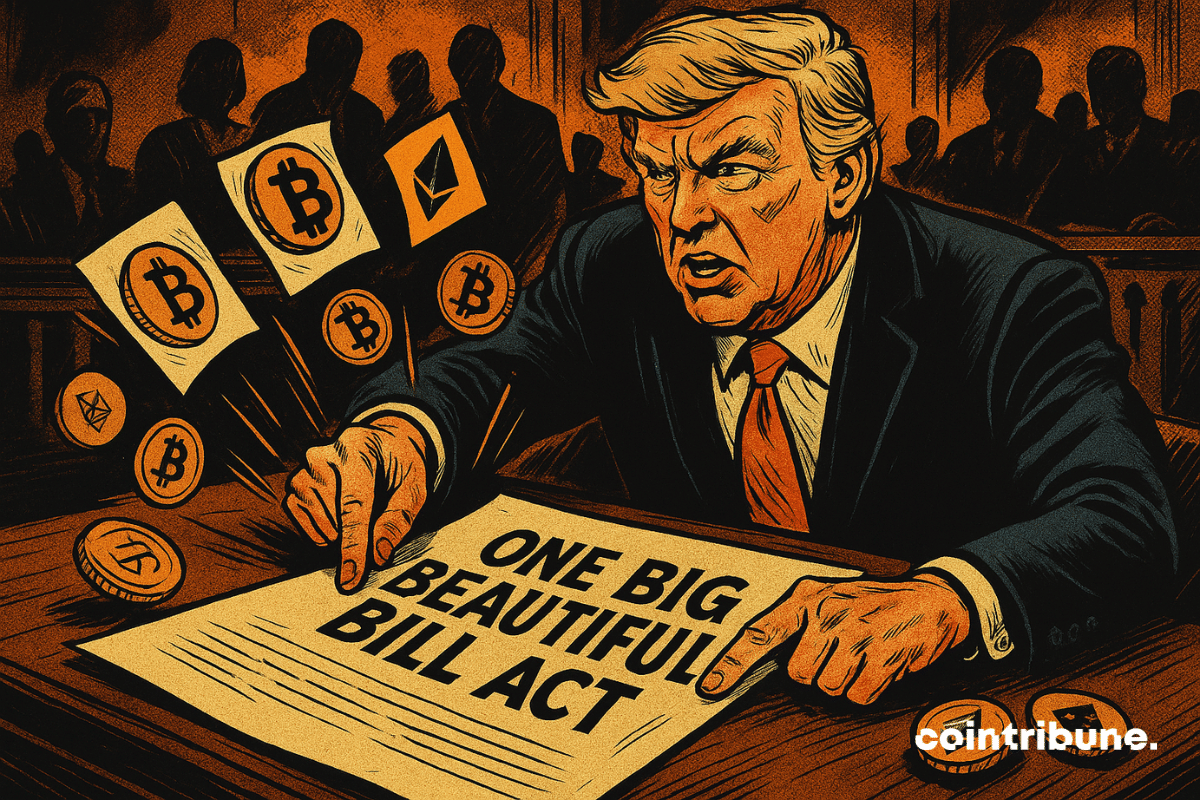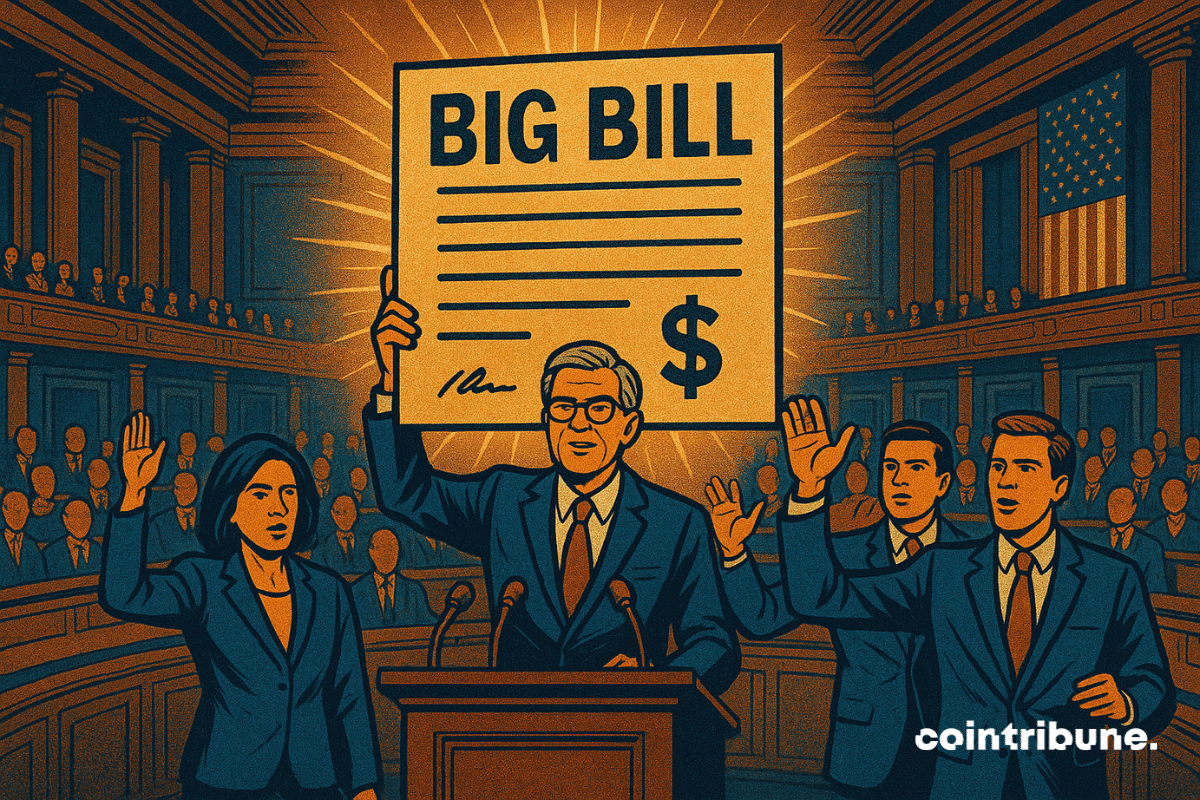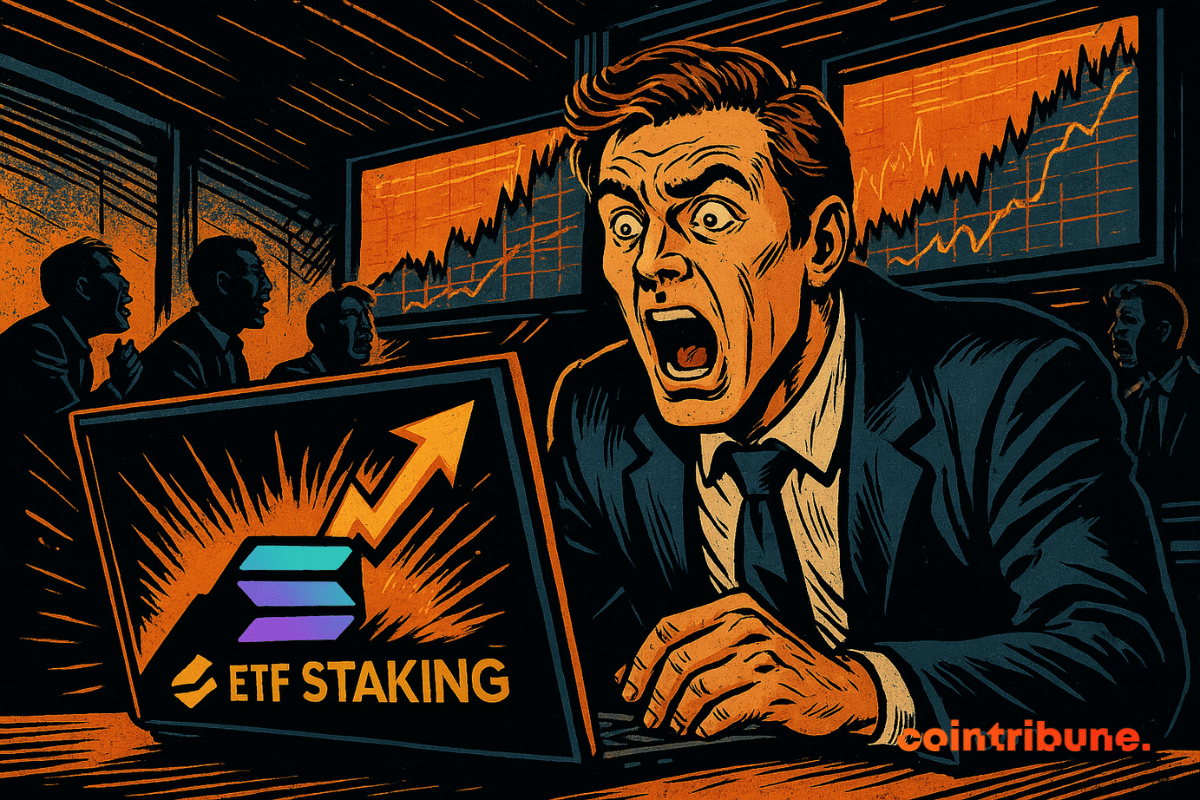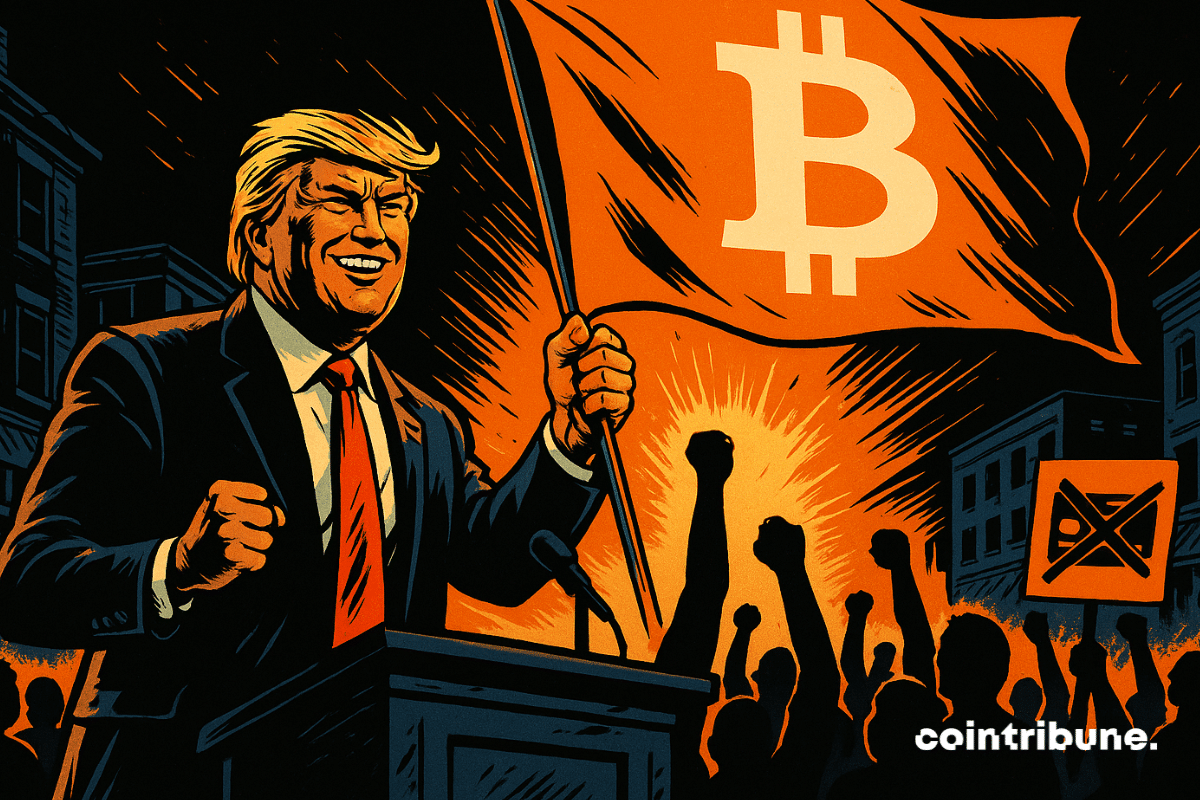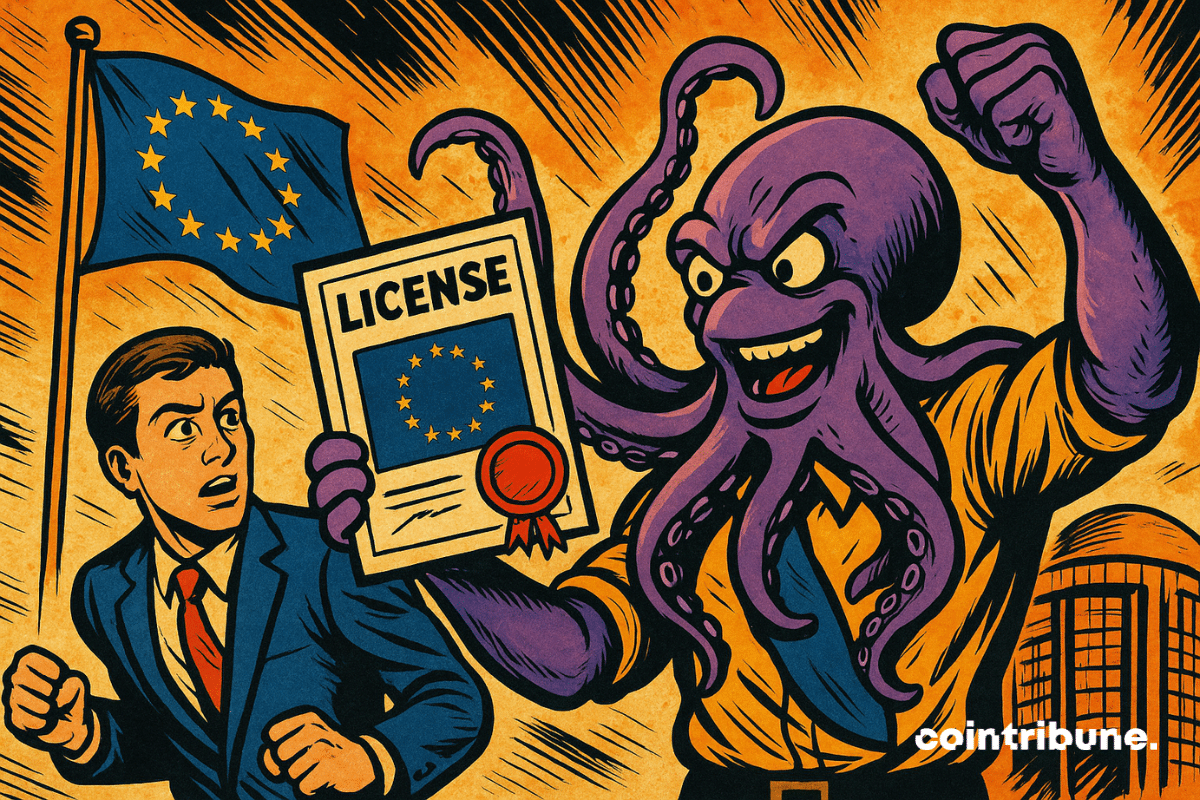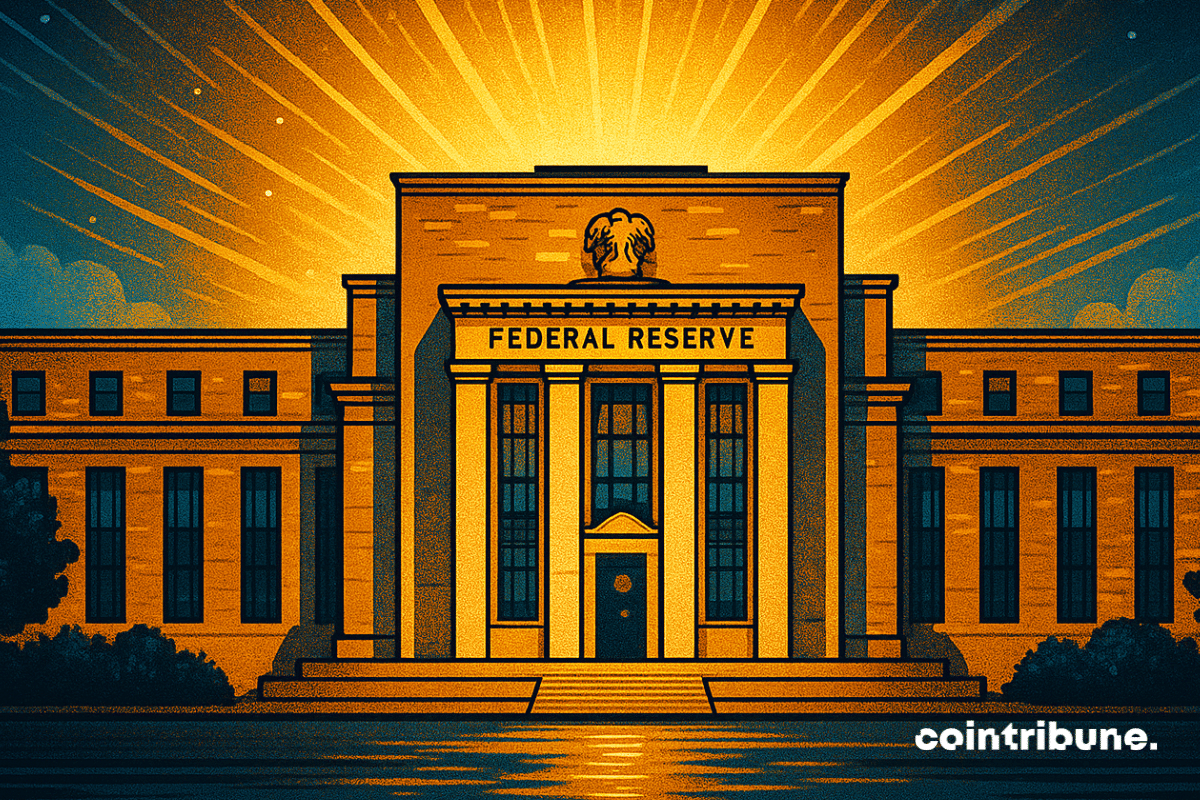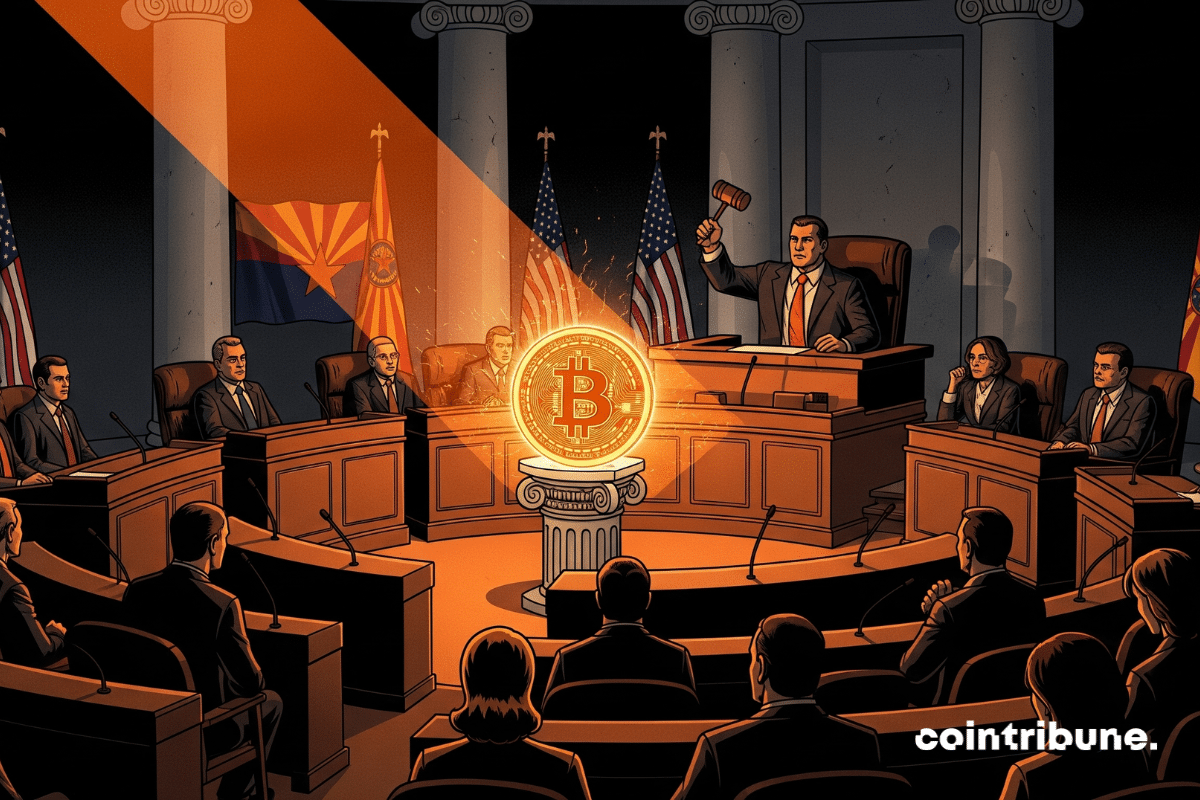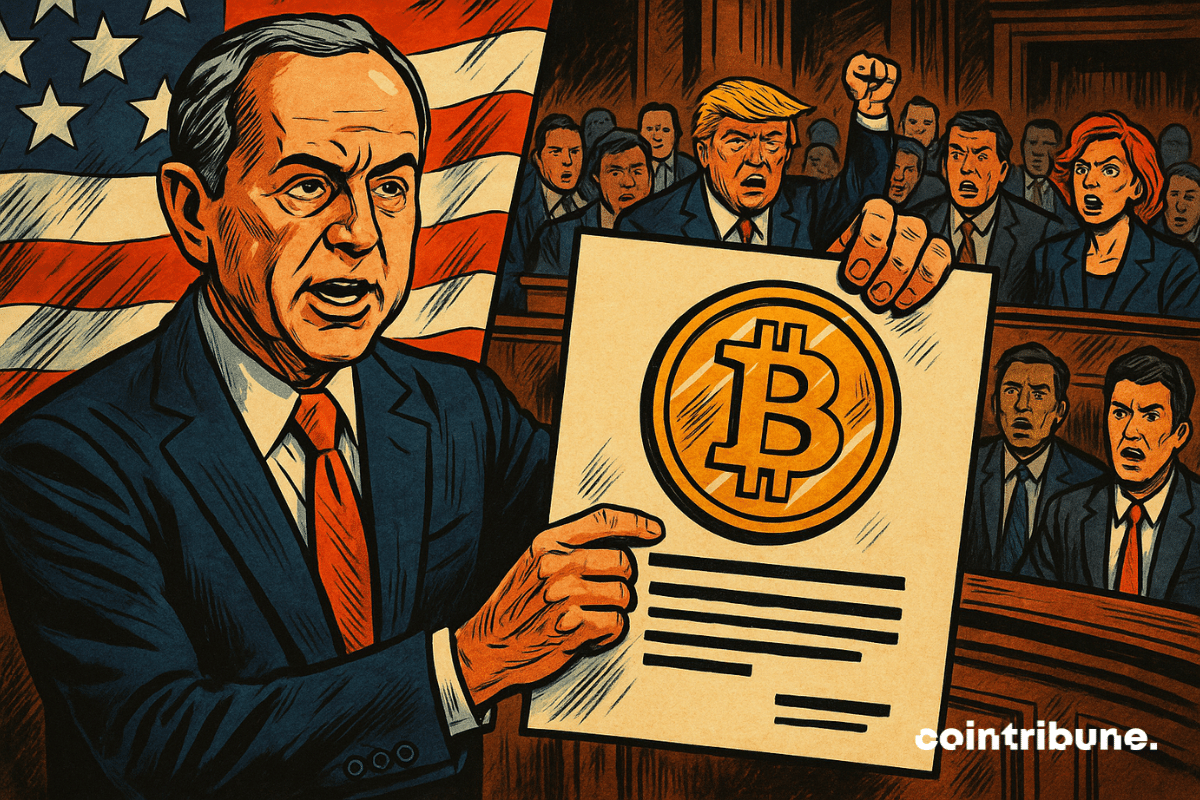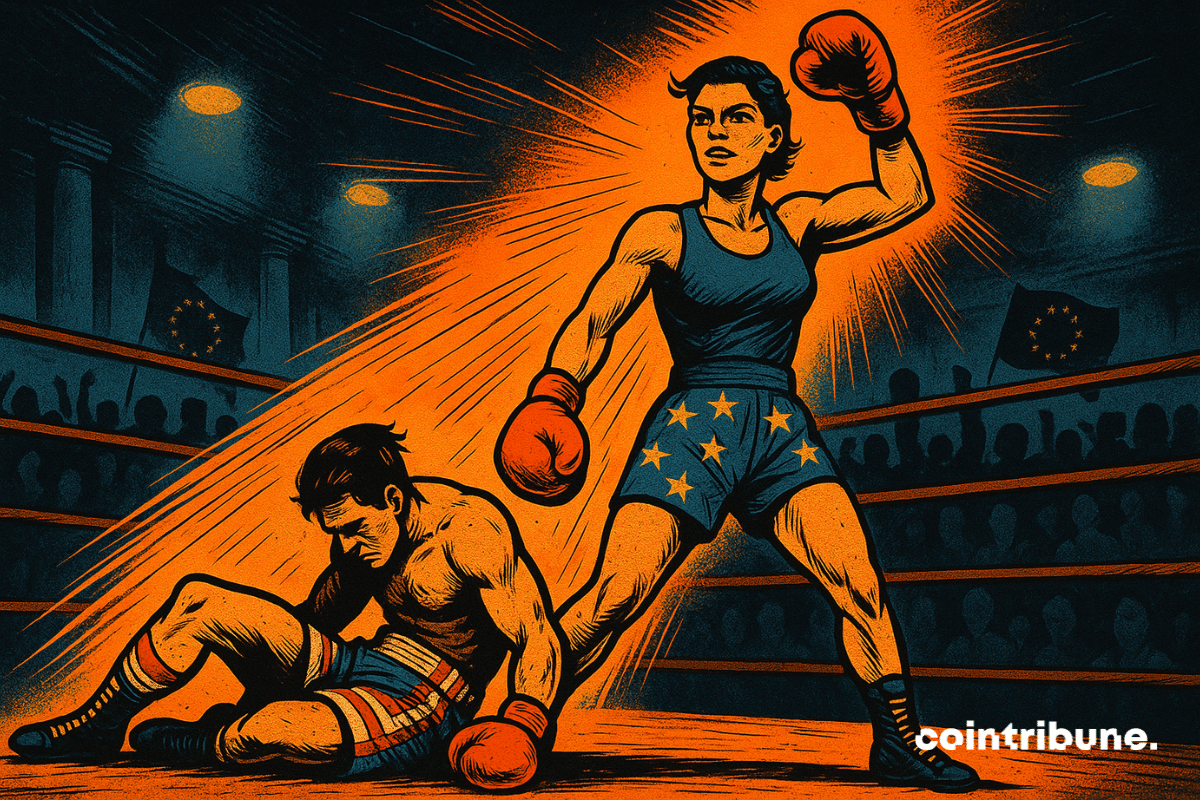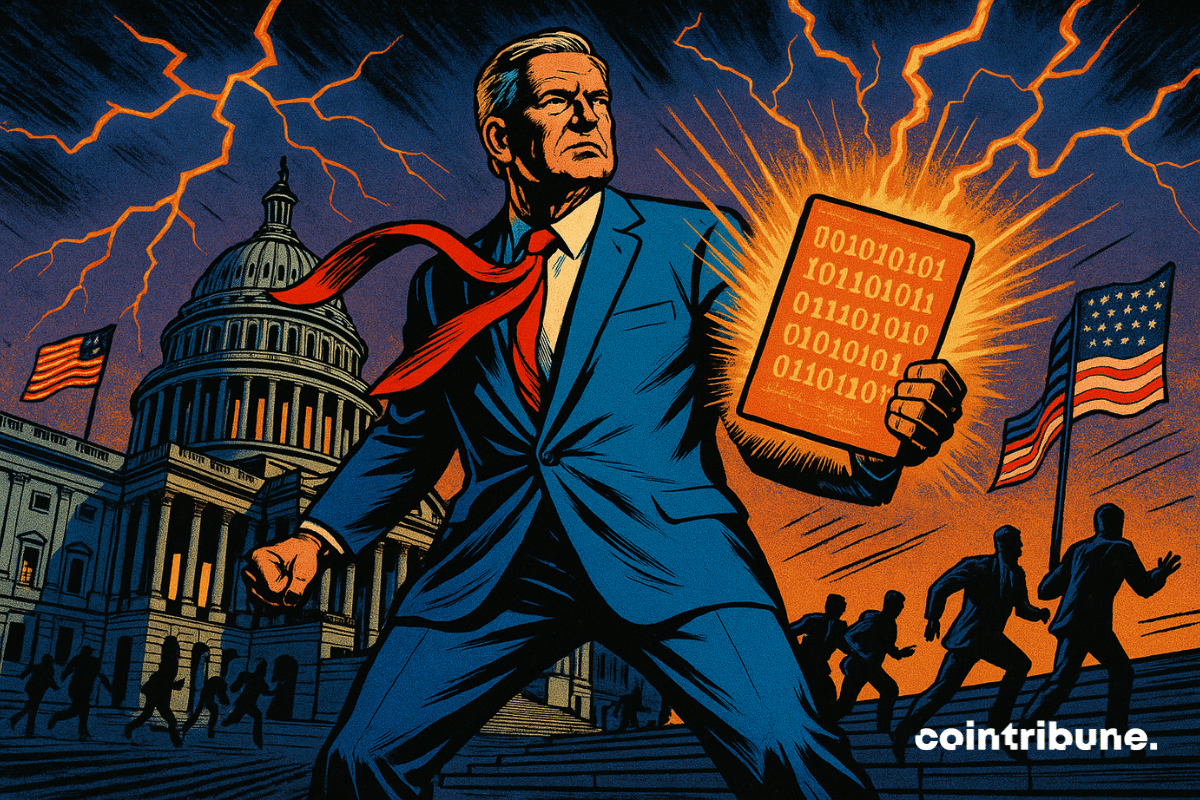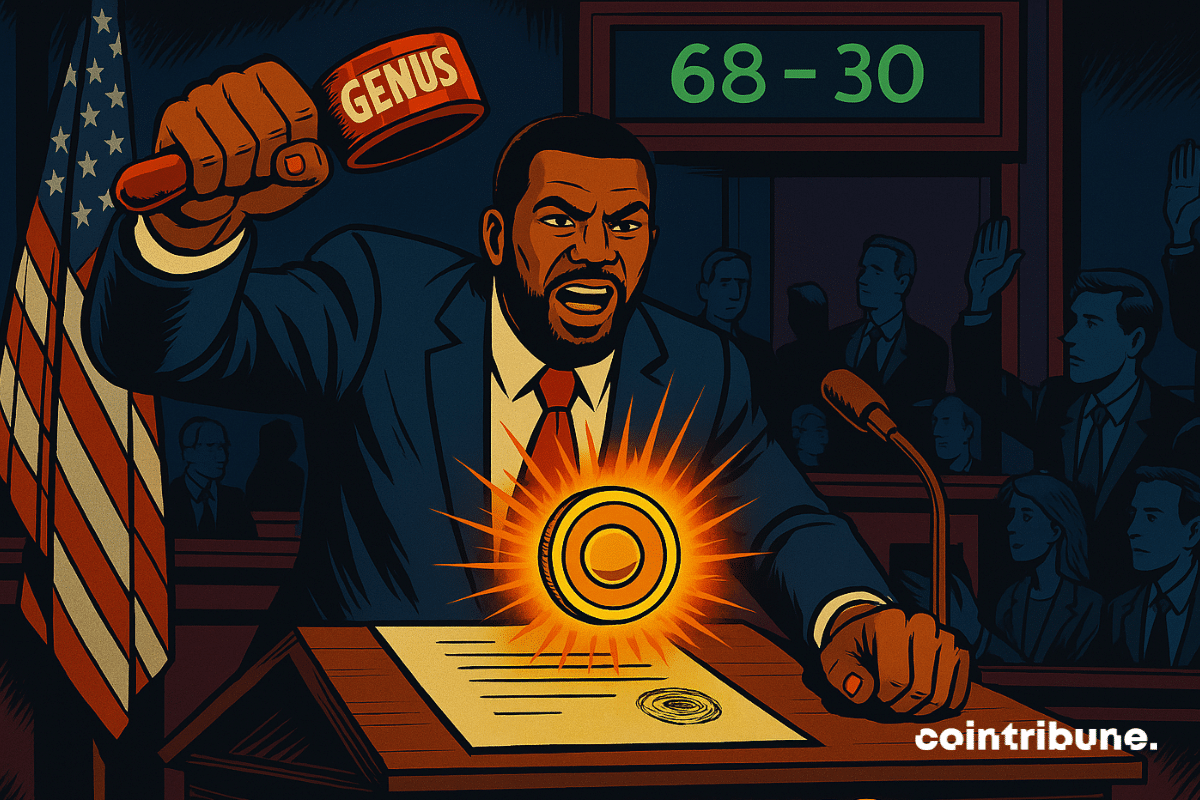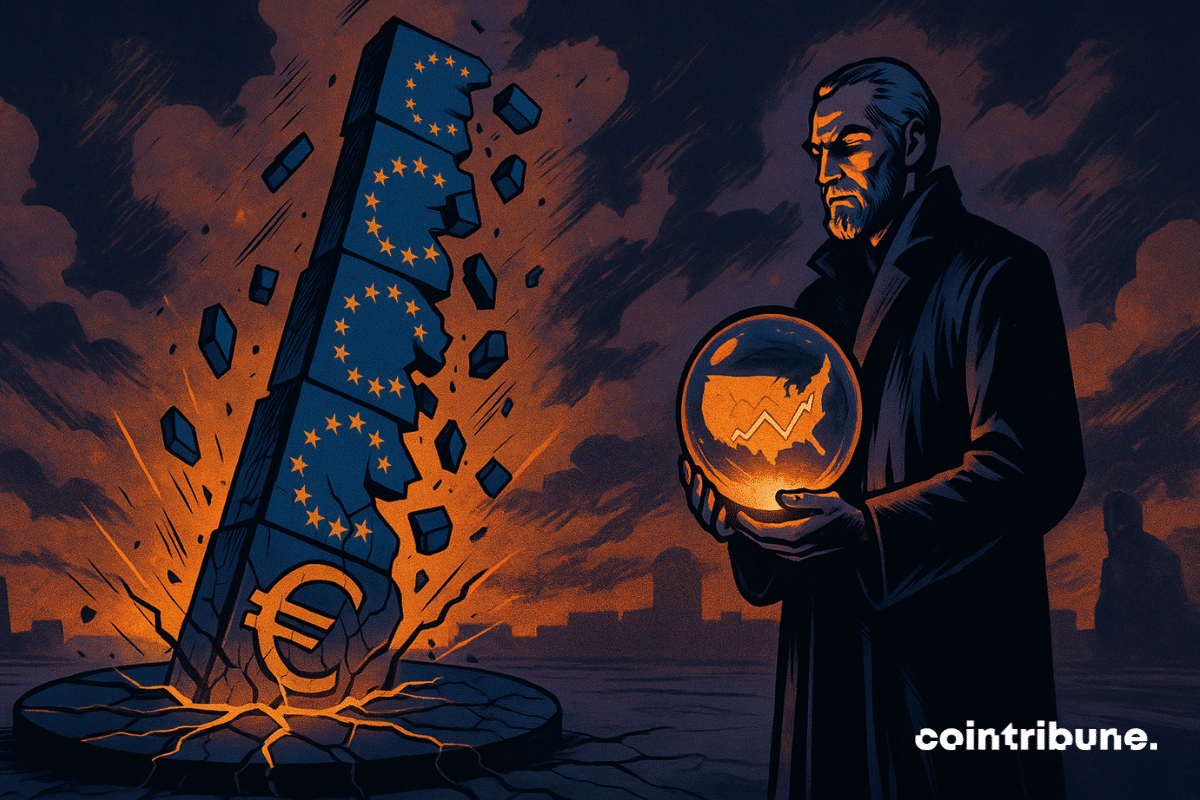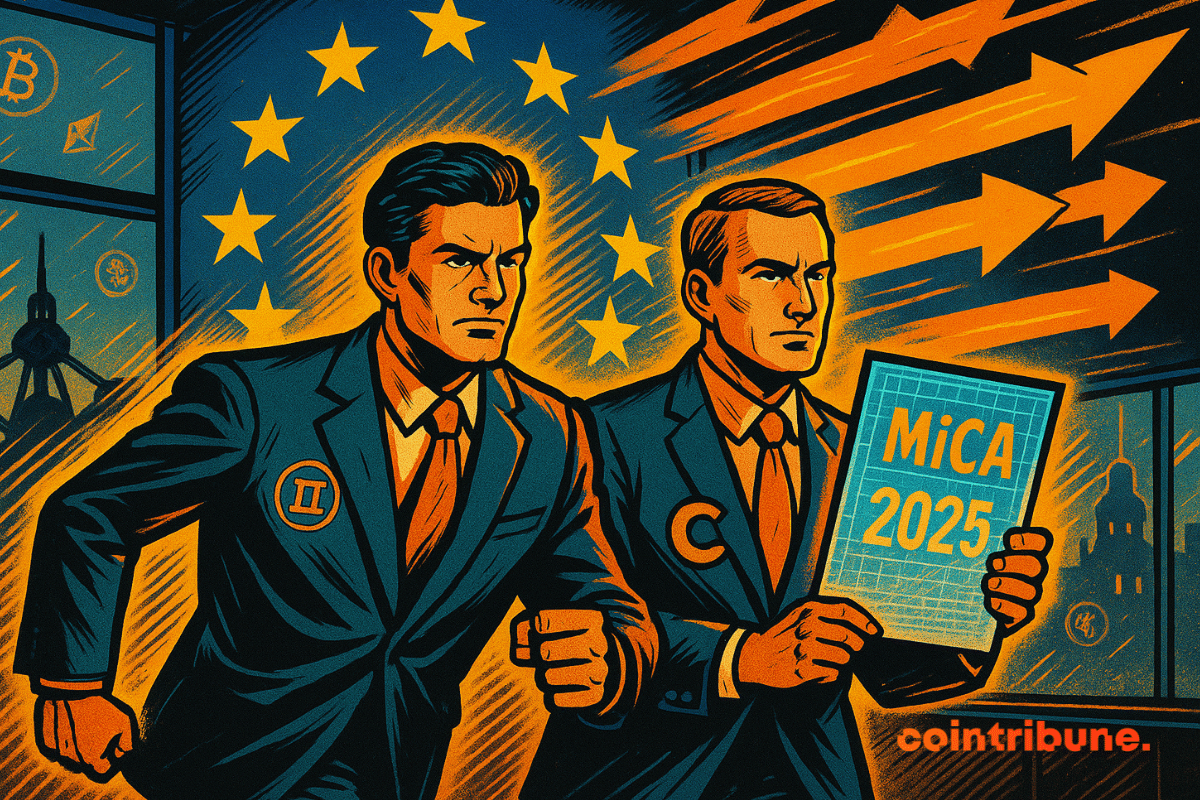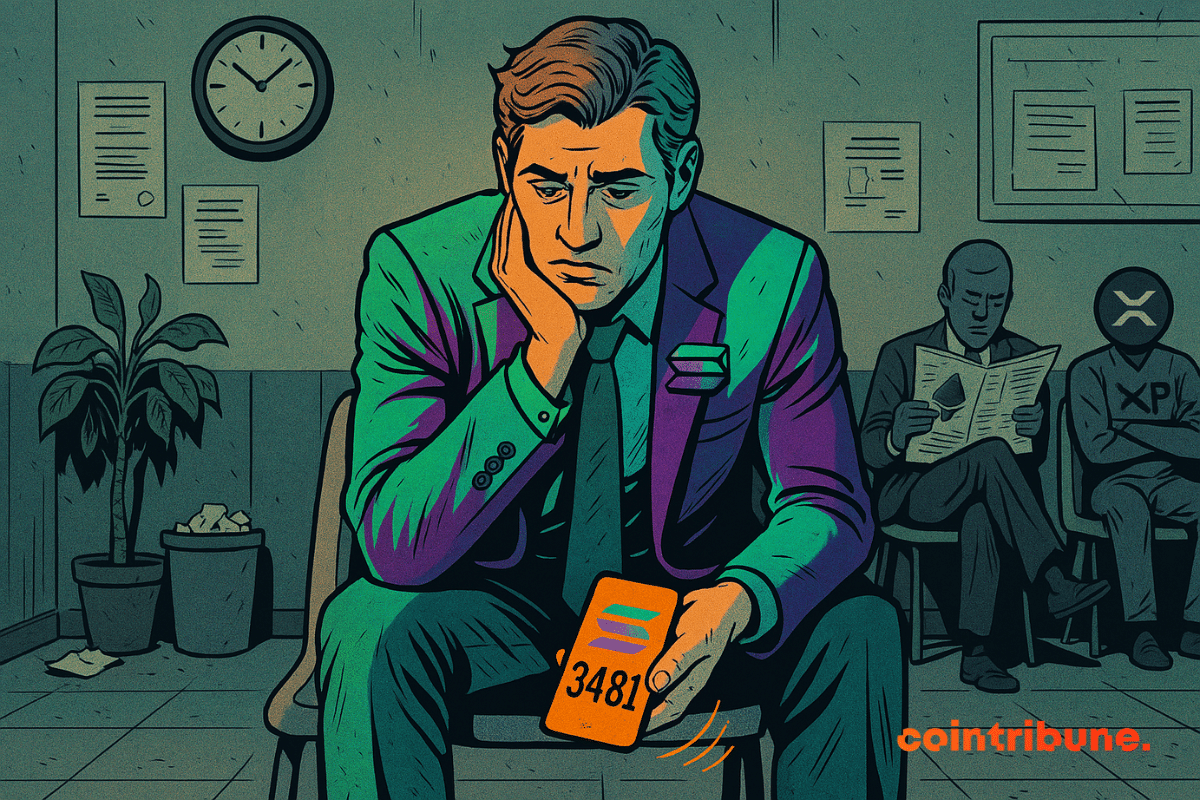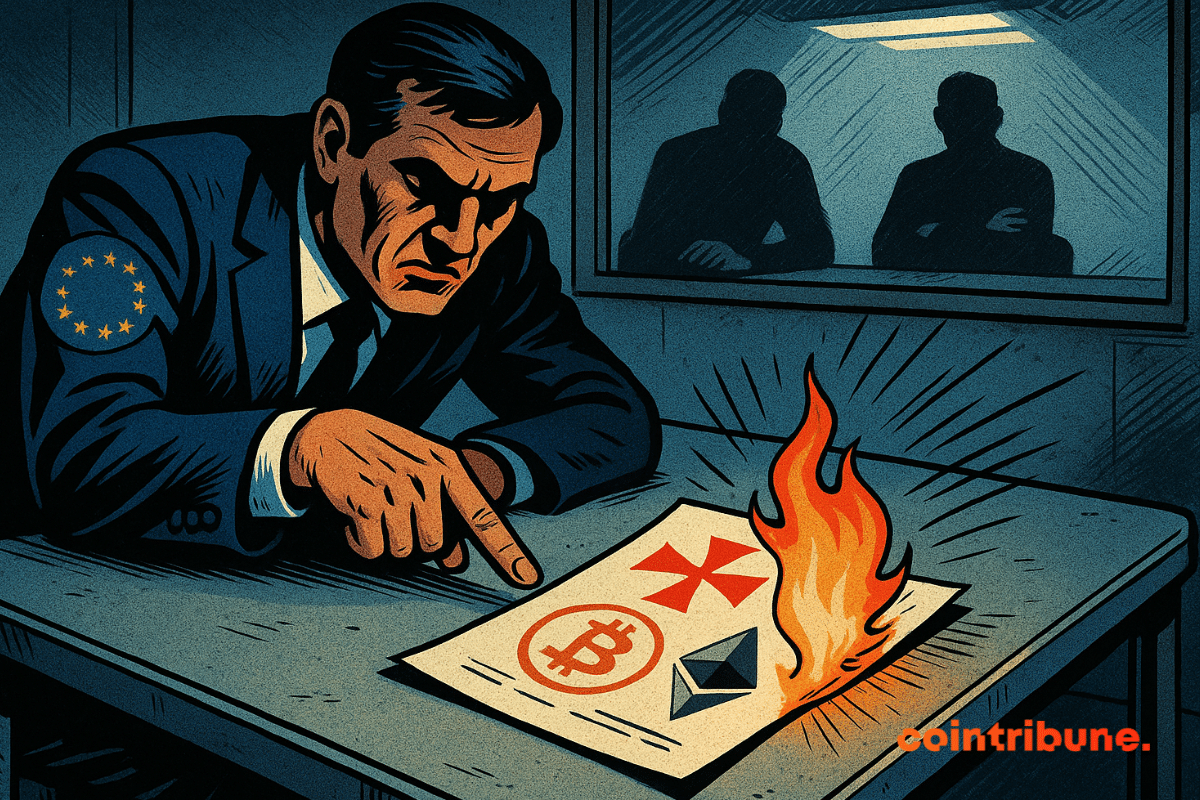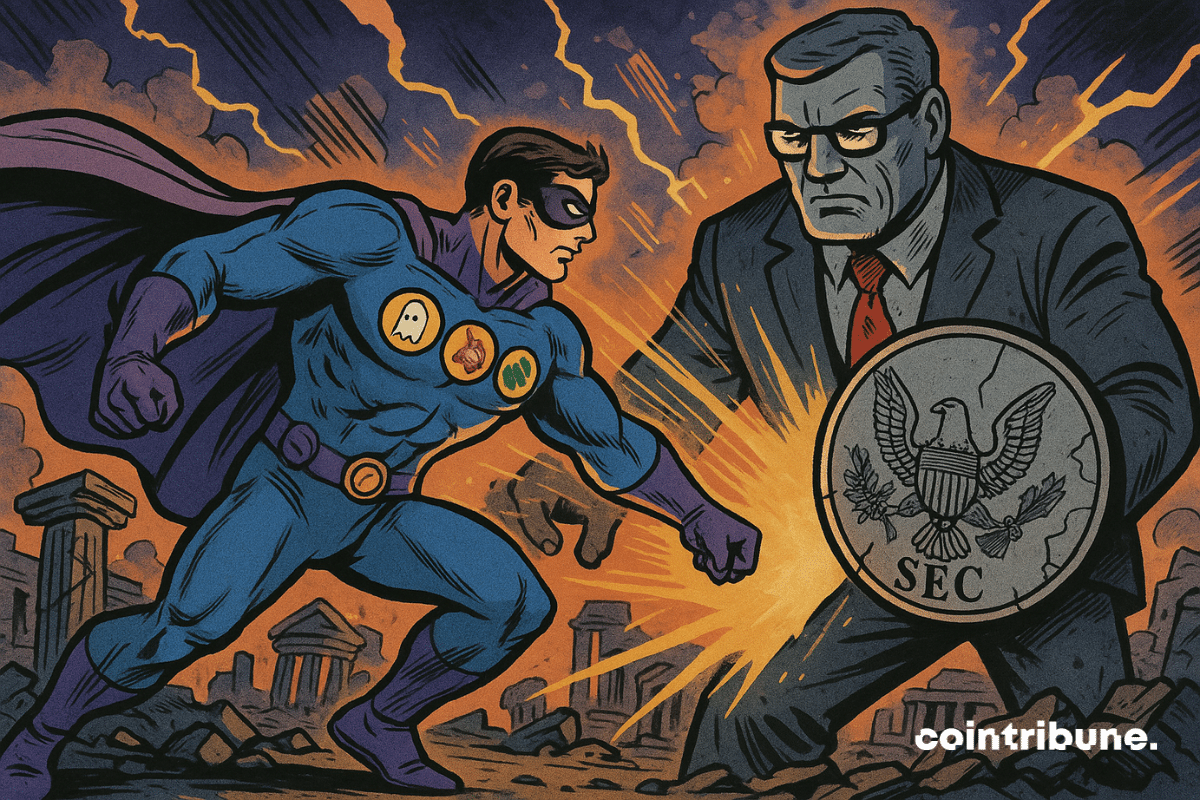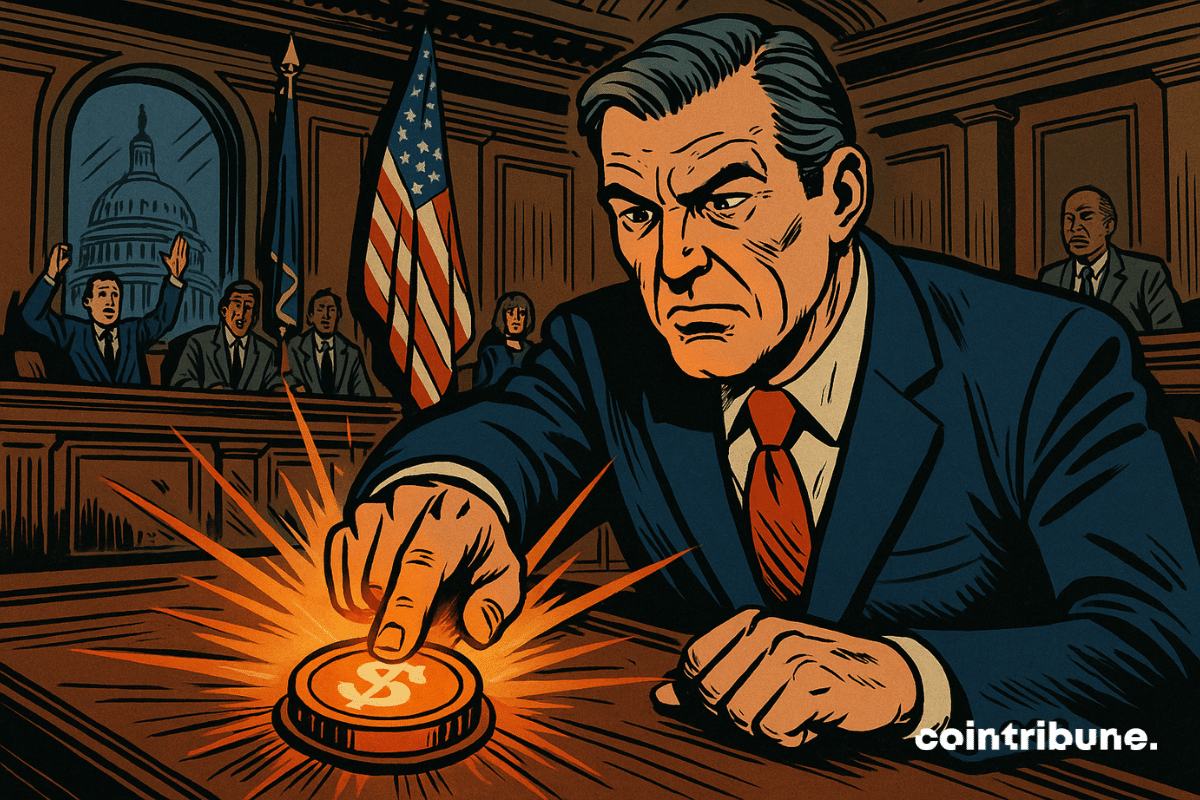Robinhood’s rollout of tokenized shares “linked” to OpenAI set off a large debate last week. A broader discussion in crypto markets about the future of tokenized private equity, and whether retail investors actually want it.
Theme Crypto regulation
The SEC has delayed its decision on Fidelity’s proposed Solana ETF, requesting updated filings amid growing investor interest and regulatory scrutiny.
When a former minister attacks stablecoins, it is not for their logo. But can we still speak of public money when crypto infiltrates everywhere? Follow the Lagarde trail…
Under the pretext of stablecoins in Hong Kong, Beijing is moving its pieces. Crypto on the menu, control for dessert? JD and Ant are rolling out the digital carpet, but beware of the invisible strings.
As stablecoins gain legitimacy, a U.S. law is reigniting the fractures between monetary sovereignty and the supremacy of the dollar. With the GENIUS Act, passed by the Senate, Washington is regulating cryptocurrencies backed by the greenback. However, in Europe, a counteroffensive is being organized. Amundi fears global destabilization. Behind this legal framework, a monetary offensive with systemic effects is taking shape.
The International Monetary Fund has rejected Pakistan’s proposal to subsidize electricity for crypto mining operations, citing concerns over market distortions and energy infrastructure strain.
The crypto industry is in shock. Grayscale has just requested the SEC to suspend trading on its multi-asset ETF containing Solana and XRP, just days after its approval. What is behind this sudden turnaround?
In a European ecosystem still clouded by regulatory uncertainty, very few exchanges hold a full investment license. Kraken has taken a major strategic step: obtaining the MiFID II license now grants European investors unprecedented access to crypto derivative products within a regulated framework. A significant milestone,…
The public affairs manager at Bitpanda warns about the persistent disparities in the application of the MiCA regulation across Europe. Despite its promises of harmonization, the European Union struggles to establish a true single market for cryptocurrencies. MiCA is on the way, indeed, but each member state interprets and applies the law in its own way.
Credit rating giant Moody's just took a big step in blending traditional finance with blockchain and crypto. It launched a pilot program that puts its scores on-chain, starting on the Solana blockchain.
The crypto ecosystem takes a symbolic leap with the accelerated validation by the SEC of the conversion of the Grayscale Digital Large Cap Fund (GDLC) into an ETF. This green light is not limited to Grayscale. It marks the entry of altcoins into the regulators' field of action. In a context where the political climate is softening towards cryptos, this decision could pave the way for a new generation of ETFs focused on assets like XRP, Solana, or Cardano.
Trump exults, Warren rises up, Lummis screams into the wilderness... The Senate votes, cuts through, carefully avoids crypto, and signs a XXL law, as silent as it is deafening for digital miners.
The world of crypto is often built on the fringes of institutions. However, some companies choose to swim against the tide by seeking to fully integrate into them. This is the case with Circle, the issuer of USDC, which is no longer content to be just a tech player. The American company has officially applied to become a national trust bank in the United States. This is both a bold move and indicative of a broader shift in the crypto ecosystem: integration into the federal banking system to better ensure trust.
On June 17, the U.S. Senate passed the GENIUS Act, short for Guiding and Establishing National Innovation for U.S. Stablecoins Act, by a 68-30 bipartisan vote. If passed by the House and signed by the President, the bill would introduce the first comprehensive federal framework for regulating stablecoins in the United States.
A Solana ETF that stakes, analysts rejoicing, and the SEC saying nothing... Could REX Shares be trying to make crypto dance on the regulatory floor?
President Trump has criticised debanking, echoing concerns from the crypto sector as the White House revisits executive action.
Kraken, often discreet but never truly withdrawn, has just taken a strategic step that could reshuffle the crypto market in Europe. By obtaining its regulatory license under the MiCA framework, the platform is stepping into the big leagues at a continental level, just behind Coinbase, but not too far behind to be considered lagging. In an environment where compliance is becoming a must-have, Kraken chooses to embrace regulation rather than circumvent it. And this choice could pay off handsomely.
The Federal Reserve just made a big change that could make it easier for crypto companies to get bank accounts. On Monday, the Fed said it would no longer use “reputational risk” as part of its official bank supervision process. That vague label was often used to warn banks away from doing business with crypto firms, and many in the industry say it led to years of unfair “debanking.”
Crypto reserve in Arizona: a bill passed despite criticism from the governor. Discover the details in this article!
Japan is wielding its fiscal sword: crypto ETFs on the horizon, lower taxes... and investor samurais soon converted to Bitcoin? In Tokyo, traditional finance shakes under its kimono.
Trump rewards holders of his memecoin with a private dinner. Immediate reaction: Adam Schiff, a Democratic senator, draws up a law to regulate the use of cryptocurrency by political officials. A confrontation that mixes digital assets, conflicts of interest, and electoral calculations.
While Trump rushes headlong to save his stablecoins, Europe is rolling out MiCA and taking the crypto prize. What if, for once, bureaucracy won the race?
American President Donald Trump is urging Congress to promptly pass the GENIUS Act on stablecoins. A race against time is on to make the United States the global leader in digital assets. But does this rush conceal personal interests?
While Trump rakes in millions in home tokens, the Senate blesses stablecoins. New digital dollar or old electoral trick? A deep dive into the American crypto theater.
Europe, once a pioneer in the regulation of cryptocurrencies, might soon become just a simple corridor traversed by innovation without ever holding onto it. While the United States and Asia are making concrete advances, the Old Continent is bogged down in caution. Catriona Kellas, legal officer at Franklin Templeton, pulls no punches: the EU risks being relegated to the status of a spectator, unable to compete with the dynamics of major rival powers.
Major crypto exchanges Coinbase and Gemini are close to securing licences to operate legally across the European Union (EU) under the Markets in Crypto-Assets (MiCA) regulation. With these licences, they would join other global exchanges like Bybit, which gained approval from Austria’s Financial Market Authority in May.
Seven giants align for Solana ETFs, the SEC plays the waiting game: suspense, thrills, and staking in the plush backrooms of the American regulatory temple. Stay tuned...
Concerns grow over Malta’s quick crypto licensing under MiCA, raising questions about fair enforcement across the EU.
Thanks to a more favorable attitude from the SEC, DeFi governance tokens are resuming their upward trend.
The regulation of stablecoins in the United States has just reached a historic milestone. The U.S. Senate voted 68 to 30 to advance the GENIUS Act, paving the way for a plenary session debate. Does this advancement finally mark the birth of a federal regulatory framework for dollar-backed cryptocurrencies?

